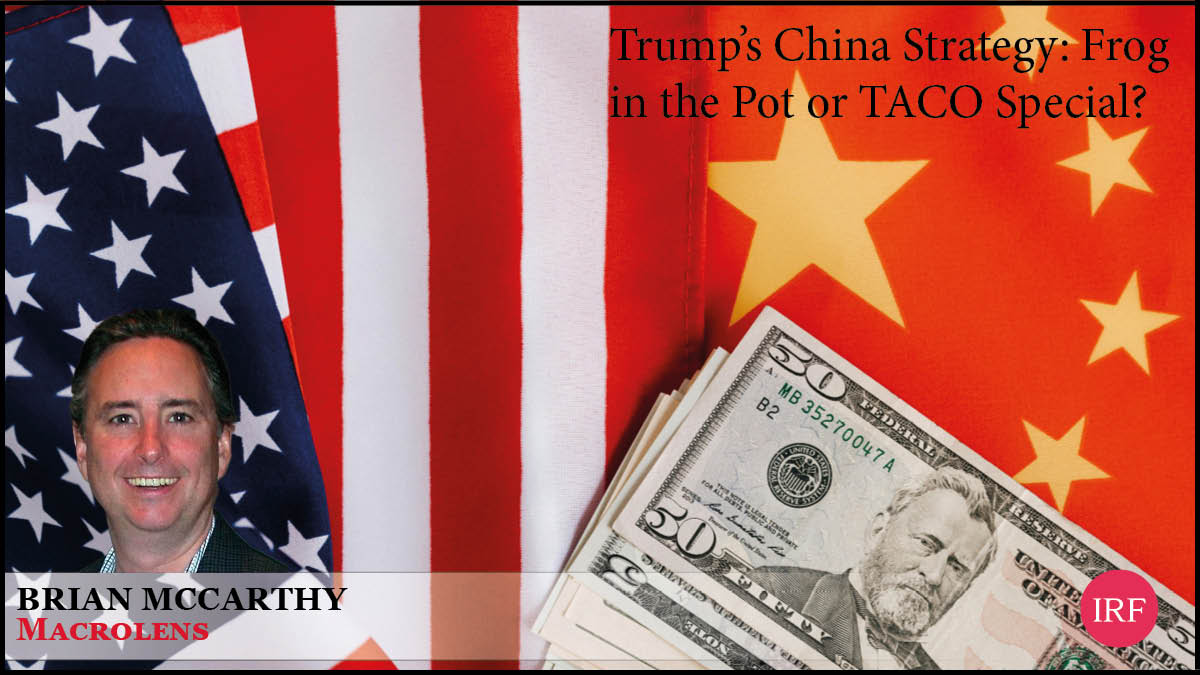Trump’s China Strategy: Frog in the Pot or TACO special?
Macrolens
Thu 07 Aug 2025 - 15:00
Summary
Brian McCarthy discussed a shift in U.S. policy toward China, highlighting the surprising decision to exempt TSMC from semiconductor tariffs, which runs counter to the administration’s earlier push for strategic decoupling aimed at securing supply chains, limiting investment flows, and restricting military-relevant technology transfers. Momentum built earlier in the year through allied cooperation with the EU, UK, Japan, and India on measures such as rules of origin and metals trade alliances has recently stalled, possibly due to Chinese back-channel threats, concerns about losing decoupling as a deterrent to a Taiwan conflict, or domestic political priorities. China’s tone has shifted from defensive to confident, suggesting it anticipated U.S. concessions through corporate or diplomatic channels. This change signals a weakening of U.S. “China hawks” and may embolden Beijing, potentially slowing or reversing progress toward a unified allied de-risking strategy.
Topics
While the market sees TACOs around every corner, Xi Jinping may be getting frog-boiled
The US is happy with the status quo while it moves the ball on strategic decoupling
The lowering of tariffs on allies for steel, semiconductors and other critical sectors is key to strategic decoupling
Enforceable constraints on trans-shipping will raise China’s de facto tariff rate considerably
When the frog jumps, its risk-off
